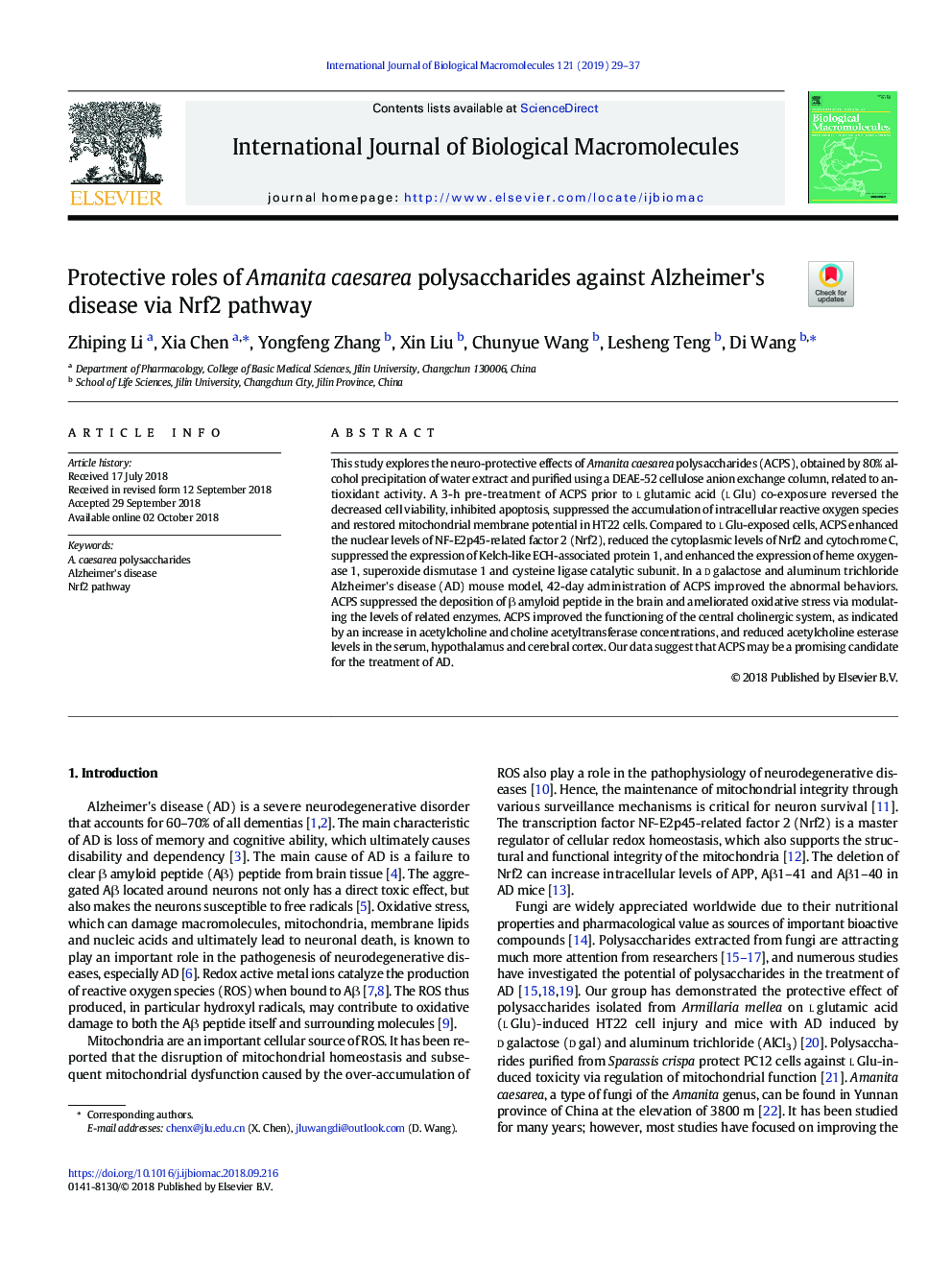| Article ID | Journal | Published Year | Pages | File Type |
|---|---|---|---|---|
| 11010944 | International Journal of Biological Macromolecules | 2019 | 9 Pages |
Abstract
This study explores the neuro-protective effects of Amanita caesarea polysaccharides (ACPS), obtained by 80% alcohol precipitation of water extract and purified using a DEAE-52 cellulose anion exchange column, related to antioxidant activity. A 3-h pre-treatment of ACPS prior to lâglutamic acid (lâGlu) co-exposure reversed the decreased cell viability, inhibited apoptosis, suppressed the accumulation of intracellular reactive oxygen species and restored mitochondrial membrane potential in HT22 cells. Compared to lâGlu-exposed cells, ACPS enhanced the nuclear levels of NF-E2p45-related factor 2 (Nrf2), reduced the cytoplasmic levels of Nrf2 and cytochrome C, suppressed the expression of Kelch-like ECH-associated protein 1, and enhanced the expression of heme oxygenaseâ1, superoxide dismutase 1 and cysteine ligase catalytic subunit. In a dâgalactose and aluminum trichloride Alzheimer's disease (AD) mouse model, 42-day administration of ACPS improved the abnormal behaviors. ACPS suppressed the deposition of βâamyloid peptide in the brain and ameliorated oxidative stress via modulating the levels of related enzymes. ACPS improved the functioning of the central cholinergic system, as indicated by an increase in acetylcholine and choline acetyltransferase concentrations, and reduced acetylcholine esterase levels in the serum, hypothalamus and cerebral cortex. Our data suggest that ACPS may be a promising candidate for the treatment of AD.
Keywords
Related Topics
Life Sciences
Biochemistry, Genetics and Molecular Biology
Biochemistry
Authors
Zhiping Li, Xia Chen, Yongfeng Zhang, Xin Liu, Chunyue Wang, Lesheng Teng, Di Wang,
